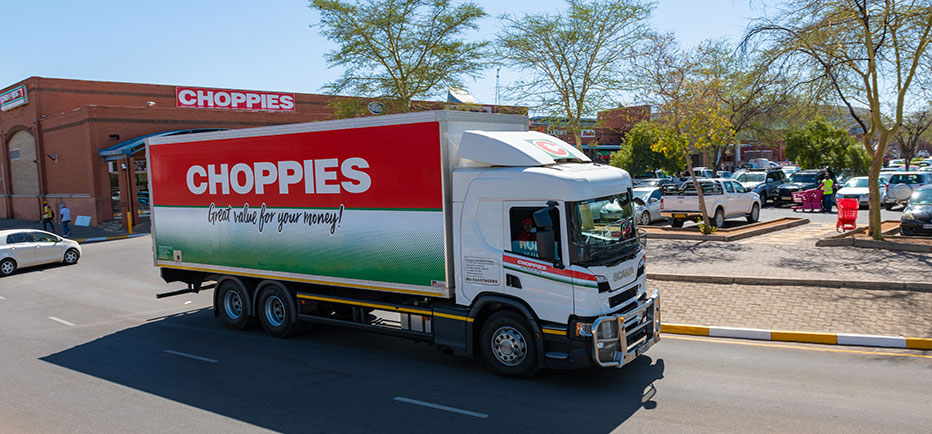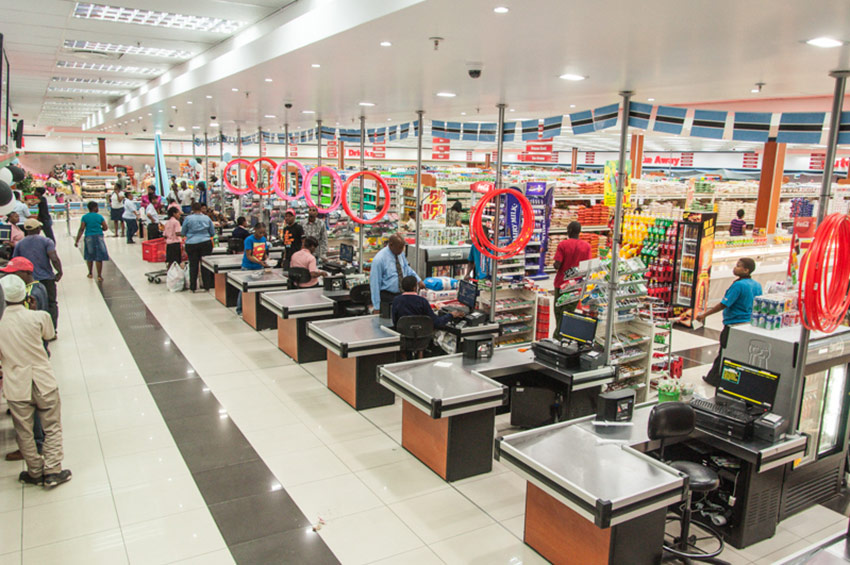Choppies Supermarket: From Lobatse Store to Regional Retail Giant. Choppies Supermarket, once a modest store in the bustling town of Lobatse, Botswana, has become a household name in Southern Africa. Its journey from a single store to a multinational retail chain spanning several countries is a story of resilience, strategic innovation, and bold expansion. Choppies’ rise is a blueprint for Botswana entrepreneurs aspiring to scale their businesses beyond borders. This article uncovers the strategies, turning points, and lessons that turned Choppies into one of Africa’s leading supermarket chains.
Humble Beginnings with Big Dreams

Choppies’ story began in 1986, when Farouk Ismail and Ramachandran Ottapathu acquired a single store in Lobatse. With a focus on affordable pricing and accessible goods, they quickly won the trust of local shoppers. Their ability to understand the needs of the Botswana market set the foundation for future growth.
Lesson: Focus on your core market by addressing its unique needs. Build trust by offering quality products at competitive prices.
Strategic Expansion Across Botswana
By the early 2000s, Choppies had grown into a network of supermarkets across Botswana, serving urban and rural communities alike. The company invested in supply chain efficiencies, ensuring consistent stock and lower costs.
Turning Point: Choppies identified underserved areas and strategically placed stores in locations where demand was high but competition was minimal.
Lesson: Entrepreneurs should seek opportunities in underserved markets, using strategic placement and operational efficiency to outpace competitors.
Going Regional: Bold Moves Beyond Borders
In 2008, Choppies ventured outside Botswana, opening its first stores in South Africa. This marked the beginning of its transformation into a regional powerhouse. Expansion into Zimbabwe, Zambia, Kenya, Namibia, and Mozambique followed.
Innovative Approach: Choppies adapted to each market’s unique challenges, such as currency instability in Zimbabwe, by incorporating local knowledge and hiring local teams.
Lesson: Entering foreign markets requires research, cultural sensitivity, and adaptation to local conditions.
Embracing Technology and Operational Efficiency

Choppies invested heavily in modernizing its operations. From state-of-the-art inventory management systems to digital marketing strategies, the company ensured that its growth was supported by robust infrastructure.
Example: Introducing electronic payment systems and loyalty programs improved customer experience and increased brand loyalty.
Lesson: Entrepreneurs should leverage technology to streamline operations and enhance customer engagement.
Resilience in the Face of Challenges
Choppies faced its share of setbacks, including financial difficulties and regulatory challenges in some markets. However, the company’s leadership responded with transparency, restructuring efforts, and a renewed focus on its core strengths.
Key Strategy: Choppies streamlined its operations, focusing on profitable markets while exiting those that proved unsustainable.
Lesson: Resilience and adaptability are crucial in navigating business challenges. Entrepreneurs must be willing to pivot when necessary.
For Aspiring Entrepreneurs
- Think Long-Term: Build a brand that prioritizes sustainability over short-term gains.
- Adapt and Innovate: Success requires constant evolution and openness to change.
- Invest in People: Local talent and community engagement are invaluable assets for any business.
- Plan for Scale: Design systems and processes that can handle growth from the start.

Choppies Supermarket’s rise from a single store in Lobatse to a regional retail giant is a testament to the power of vision, strategy, and resilience. By focusing on the needs of its customers, embracing innovation, and maintaining a steadfast commitment to growth, Choppies has paved the way for Botswana entrepreneurs to dream bigger. Its journey is not just a success story; it’s a roadmap for building a multinational business from the heart of Africa.





